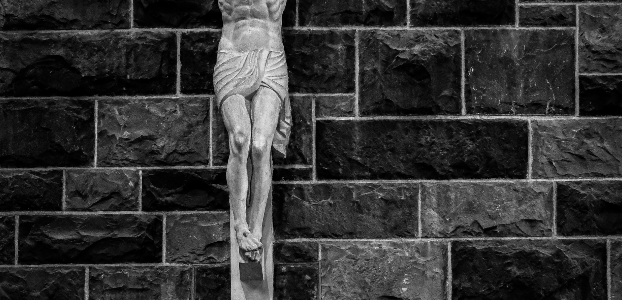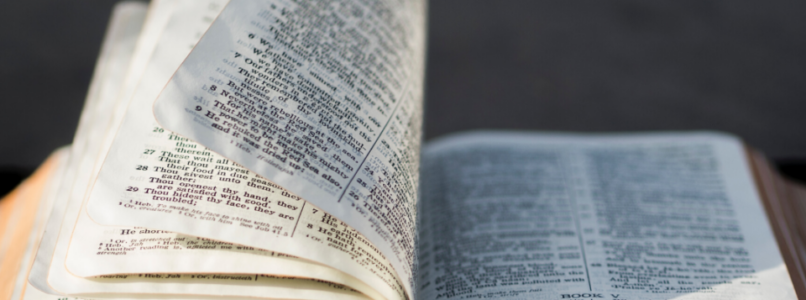Simply put, Divine Mercy is the heart of our faith. It not only entails God’s mercy towards us, we must carry out works of mercy in our own lives, becoming an extension of the work of God: “be apostles of Divine Mercy under the maternal and loving guidance of Mary” (St .John Paul II)
The devotion to Divine Mercy is popularly associated with Saint Faustina who was born Helena Kowalska to a peasant family in 1905. At the tender age of seven, she already claimed to feel a call to the religious life. Due to her poverty, she was rejected by multiple convents, until she finally entered the Congregation of the Sisters of Our Lady of Mercy in Warsaw at the age of 20.
On the 22nd of February 1931, Jesus appeared to sister Faustina clothed in white and with red and white rays emanating from His Heart. In her diary, Faustina recorded that Jesus made the following request to her:
Paint an image according to the pattern you see, with the signature: “Jesus, I trust in You”. I desire that this image be venerated, first in your chapel, and then throughout the world. I promise that the soul that will venerate this image will not perish. (Diary 47).
The message of mercy was incredibly timely for our world, as we can see by the fast proliferation of devotional images of the Divine Mercy during the Second World War (a war which was predicted by Faustina). While there was already a feast day dedicated to mercy, no one seemed to know of it. Thus, Jesus requested Faustina that the first Sunday after Easter be especially dedicated to it.
We begin to see in the writings of Thérèse of Lisieux, who ‘helped to heal souls of the rigors and fears of Jansenism’,[1] the significance of God’s mercy for the tumultuous time the world was about to enter. Both Thérèse and Faustina shared a deep devotion to the loving mercy of God, with Thérèse writing: “I shall begin to sing what I must sing eternally: the mercies of the Lord”. In making Faustina the Secretary of Divine Mercy, God was able to communicate to the world that this was a time of where God’s mercy would overflow.
What exactly does this mercy entail? My favorite prayer can be found in the Divine Mercy chaplet. It wonderfully describes how God’s mercy is something that we cannot even comprehend in our littleness, something that we may only fully grasp on the day that we come face to face with Him. God’s mercy has no limit, in fact, ‘inexhaustible’ is the adjective which is used.
Eternal God, in whom mercy is endless and the treasury of compassion – inexhaustible, look kindly upon us and increase Your mercy in us, that in difficult moments we might not despair nor become despondent, but with great confidence submit ourselves to Your holy will, which is Love and Mercy itself.
No matter how many times we fall away, refuse His will and say no to Him, God is waiting for us with open arms. The care that He feels for us simply cannot be expire, and tirelessly, He waits for us to say yes to Him.
As Catholics, we are not only called to embrace God’s mercy towards us, but also to mirror His mercy in the world. Another saint particularly associated with the Divine Mercy devotion is Pope Saint John Paul II. He practiced incredible works of compassion both throughout his pontificate, and when he was known by the name Karol Wojtyła. He assisted the young Jewish refugee Edith Zierer who had escaped from a Nazi labour camp. When he was shot by Mehmet Ali Ağca in Saint Peter’s Square, John Paul II visited the ‘brother whom I have pardoned and who has my complete trust’. While we may not be able to carry out such extraordinary works of mercy and forgiveness in our lives, we can indeed follow the Little Way of St Thérèse who treated everyone around her with love. One must not be discouraged by the littleness of their actions: they ripple out into the world, like a small stone flung into a pond. The ripples reach further than we could ever imagine: “you are to show mercy to our neighbors always and everywhere” (Jesus to Saint Faustina, Diary 742).
As John Paul II said at the Shrine of Divine Mercy in Krakow, 1997, there is nothing man needs more than Divine Mercy. May we give thanks to the Lord for His goodness.
Jesus, we trust in You.
[1] http://www.vatican.va/content/john-paul-ii/en/apost_letters/1997/documents/hf_jp-ii_apl_19101997_divini-amoris.html
Lucy Coatman is a historian in training, currently pursuing a postgraduate degree in History at the University of St Andrews, where she converted to Catholicism in 2015. She holds an MA in Theological Studies from the same institution. Lucy is passionate about the mercy and goodness of God, as well as 19th century Austrian history, Tintoretto paintings, and a good cup of tea. You can view more from Lucy on her website https://www.lucycoatman.com










